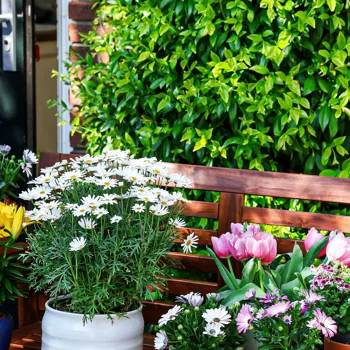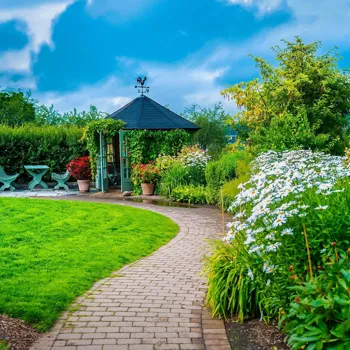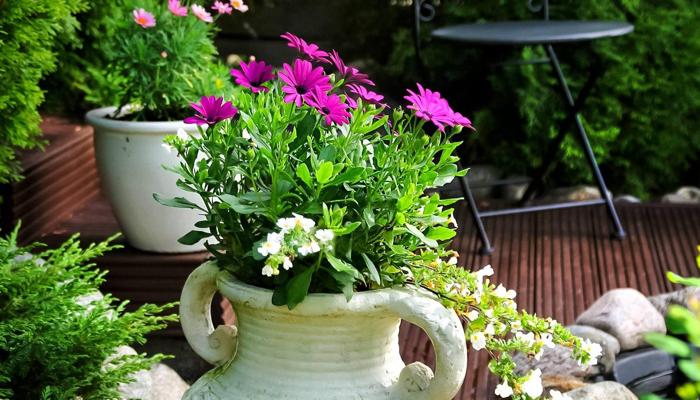Unveiling the Transformative Power of Community Gardening - Dive into its health benefits! Read more on how gardening can shape a healthier society
In bustling Indian cities and quiet villages alike, a quiet revolution
is blossoming: community gardening. More than just planting seeds and pulling weeds, community gardens are becoming vibrant hubs for health, well-being, and social connection.
Imagine a space where neighbours come together, sharing tips on growing the juiciest tomatoes, the most fragrant herbs, and building lasting bonds in the process. That's the magic of community gardening, and its benefits are rippling outwards, touching lives in profound ways.
Let's dig deeper into how getting your hands dirty can actually make you healthier and happier.
Community gardening boosts physical health with exercise, sunlight benefits, and stress reduction
One of the most significant advantages of community gardening is its positive impact on physical health. Gardening, even on a small scale, is a form of exercise.
Think about the bending, stretching, lifting, and walking involved – it's a gentle yet effective workout that improves strength, flexibility, and stamina.
These activities, done regularly, contribute to better cardiovascular health, helping to lower blood pressure and reduce the risk of heart disease. Moreover, the direct exposure to sunlight while gardening is crucial for vitamin D production, which is essential for bone health and immune function.
Many Indians, especially those living in urban areas with limited outdoor access, often suffer from vitamin D deficiency, making community gardening a particularly beneficial activity. Beyond the physical exertion, fresh air and connection with nature naturally lowers stress levels.
Community gardens promote healthier eating habits & cooking practices
Community gardens also play a vital role in improving nutritional well-being. When people grow their own vegetables and fruits, they have access to fresh, healthy produce that is often more affordable and nutritious than what they can find in the market.
Homegrown produce is typically free from harmful pesticides and chemicals, offering a safer and healthier alternative. Plus, children involved in gardening are more likely to eat the vegetables they've grown, instilling healthy eating habits from a young age.
This is particularly important in India, where childhood obesity and related health issues are on the rise. The knowledge gained through the gardening process about different types of produce and their nutritional value leads to better food choices for themselves and their families.
Gardens encourage healthier cooking practices, using fresh ingredients in delicious recipes.
Community gardening promotes unity and well-being through shared space and interactions
Beyond the physical and nutritional benefits, community gardening fosters a strong sense of community and belonging. In today's fast-paced world, many people feel isolated and disconnected from their neighbours.

Community gardens provide a shared space where people from different backgrounds can come together, work towards a common goal, and build relationships. Sharing gardening tips, exchanging produce, and celebrating harvests creates a sense of camaraderie and mutual support.
This social interaction can combat loneliness and improve mental well-being, particularly among senior citizens and those living alone. It also helps in building trust and understanding between different generations and communities, making the society more cohesive and harmonious.
Learning from each other's experiences and traditions strengthens the social fabric.
Gardening boosts emotional well-being through mindfulness and nature connection
Further contributing to emotional well-being is the mindful aspect of gardening. The act of planting, nurturing, and observing plants grow can be incredibly therapeutic. Spending time in nature has been proven to reduce stress, anxiety, and depression.

The sights, sounds, and smells of a garden can calm the mind and promote relaxation. Gardening also provides a sense of accomplishment and purpose, as you see the fruits (or vegetables!) of your labour flourish.
This sense of accomplishment can boost self-esteem and confidence, especially for those who may be facing challenging circumstances. The repetitive nature of gardening tasks, like weeding or watering, can be meditative, allowing you to focus on the present moment and quiet your thoughts.
Connecting with the earth and its natural cycles allows for an increase in mindfulness.
Community gardens promote sustainability through local food growth, education, and environmental awareness
Community gardens promote environmental awareness and sustainability. By growing food locally, they reduce the carbon footprint associated with transporting produce from distant farms.
Gardens also encourage the use of sustainable practices, such as composting, water conservation, and organic farming methods. This helps to protect the environment and promote biodiversity.
Community gardens can also serve as educational spaces, where people can learn about the importance of sustainable living and how to reduce their impact on the planet.
Children involved in gardening gain a better understanding of where their food comes from and the importance of protecting natural resources. This knowledge can inspire them to adopt environmentally friendly practices in their daily lives.
Gardening provides a tangible connection to the environment.
Community gardening promotes health and unity in India
With all these remarkable benefits working together, it's fairly clear that community gardening isn't just a pastime; it's an investment in both personal and public health.
As more communities across India embrace this powerful activity, we can look forward to a healthier, happier, and more connected society. Whether you have a green thumb or are just starting out, consider joining a community garden near you.
You might be surprised by the positive impact it has on your life – and on the lives of those around you. So, let’s get our hands dirty, grow together, and cultivate a healthier future for all.













